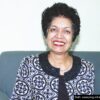South Korea: Structural innovation
A coveted place at Seoul National University (SNU), Korea University (KU) or Yonsei University (YU) — the country’s top three universities, known collectively as SKY — is the passport to the best jobs and social elite status.
Jinsang Kim, president of Kyung Hee University, is keen to see his institution, which is currently ranked #9 in the country, reach the same level of prestige. While it might sound fanciful, it’s not just an idea but a timestamped plan. “Our school wants to go to the top level… in four years,” he told Times Higher Education.
Of course it won’t be easy. Getting there means “changing all things,” he says. “I try to rethink, redesign and react. That’s my three keywords to achieve that goal.”
Since taking the helm of the private university last year, Kim has established an “aggressive” plan to improve the institution’s performance. “We have focused on data-driven, scientific management,” he says, including launching a digital transformation initiative across the university and a new centre that collects and analyses university data to “support effective policymaking”.
For Korea’s private universities, being the best may be the only way to survive. With the lowest birth rate in the world, the university-age population is shrinking and, without enough students, institutions have begun to close down.
While Kyung Hee University may be far removed from the troubles experienced by some small rural institutions — it has 34,000 students and three campuses, all in the greater Seoul region — it is more on a par with SKY institutions. But demographic challenges pose a threat to the entire sector. “This is more than a temporary crisis,” says Kim, describing it as a “fundamental turning point” for the higher education sector.
To cope with the declining population, the university plans to grow the number of graduate and international students it enrols “to conduct research at the highest level”. The institution is also increasingly focusing on lifelong learning, introducing customised programmes for working professionals and retirees, as well as expanding online degree programs.















Add comment